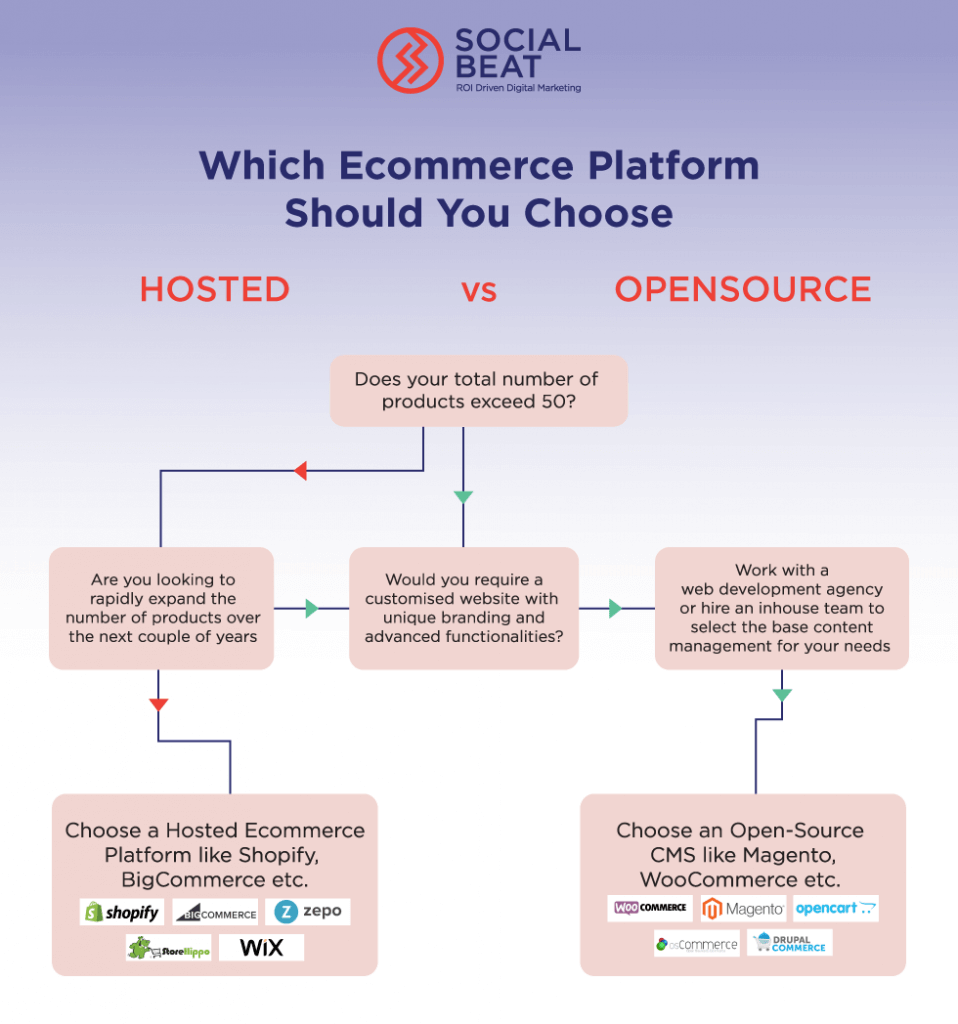
Reading Time: 10 minutesIf there is one thing Covid 19 has taught us, is that brands now have a stong and viable waterworks to connect directly with consumers – and that waterworks is digital. With thousands of uncontrived to consumer brands springing up, setting up your online store has never been increasingly easy.
When starting out a new ecommerce venture, there are a lot of elements that need to be figured out – right from the ecommerce platform (which this post explains in detail), payment gateway to integrate with your ecommerce site, product photography, social media strategy, consumer acquisition, customer retention, search engine optimisation & a whole lot more. There are a whole lot of specialists out there who can help you with each of these elements or you could buy a book on digital marketing to familiarize yourself.
The first step when starting out is the ecommerce platform and the number of such platforms and content management systems misogynist has grown over the years. While they are plug and play, many of these offer custom software and platform solutions. In such a scenario, figuring out which platform to use when you’re looking to build your online store can be a fairly troublemaking task – expressly if you aren’t from a technical/ecommerce background. This post intends to make your research work easier by helping you segregate the platform weightier suited for all your needs.
If you want to skip reading the blog and want our weightier recommendation, then throne to Shopify. With over 38 lakh businesses leveraging Shopify globally its an platonic nomination for most. You may moreover visit our D2C Centre of Excellence, D2Scale for increasingly information.
Managed e-commerce platforms vs. Content Management Systems (CMS)
There are two options misogynist for towers an e-commerce website – one can either use managed (hosted) e-commerce platforms like Shopify or open-source Content Management Systems (CMS) like WooCommerce or Magento.
As the name indicates, a hosted ecommerce platform is hosted on a server that you will not have wangle to, while CMS-based websites are self-hosted on server space (such as Bluehost) you will have to purchase. Which option to segregate will depend a lot on your specific needs as well as your level of technical involvement. Unelevated is a list of benefits of both which could help you make a nomination between the two based on your business’ current requirements:
Benefits of using Hosted ecommerce platforms
- Lower minutiae and maintenance – There is no coding expertise required, thereby eliminating the need for a minutiae team. Also, the hosting is shared, which lowers the server costs.
- Better technical support – Most online store creators have a strong tech-support team to squire users with any issues that may arise.
- Less ramified to work with – The back-end for most of these platforms is user-friendly and is built for ease of use keeping in mind users with limited technical knowledge.
Benefits of using a CMS
- Better functionality – Multitude of plugins, add-ons and themes misogynist for content management systems indulge the wing of wide functionalities that would not be possible in the specimen of self-hosted platforms.
- Better customizability – Content management systems indulge the self-rule of adding/modifying features as well as towers a customized diamond unique to one’s brand. They moreover indulge for unvarying improvements and enhancements to the user wits on the site, which plays a major role in today’s highly competitive ecommerce space.
- Can support large stores and sophisticated websites – Content Management Systems, stuff self-hosted do not have a limit to the number of products or categories allowed, so they can handle much larger stores as well as sophisticated websites.
The server can moreover be an important speciality of how your ecommerce site is built and we usually use the Linux based servers stuff provided by Bluehost or Amazon Web Services. We usually refrain from using Windows based servers.
You could use this flowchart unelevated (Click on the flowchart to enlarge) to help you victorious at a visualization on whether you should go superiority with a hosted ecommerce platform or with a CMS, based on your requirements:
 Once you’ve made your nomination on going superiority with either of the two platforms, here is a list of the 5 weightier options you could explore in each niche:
Once you’ve made your nomination on going superiority with either of the two platforms, here is a list of the 5 weightier options you could explore in each niche:
Best hosted ecommerce platforms
If you’ve decided that an online store creator would largest suit your business, then unelevated are the weightier platforms misogynist for you to segregate from.
Dukaan:
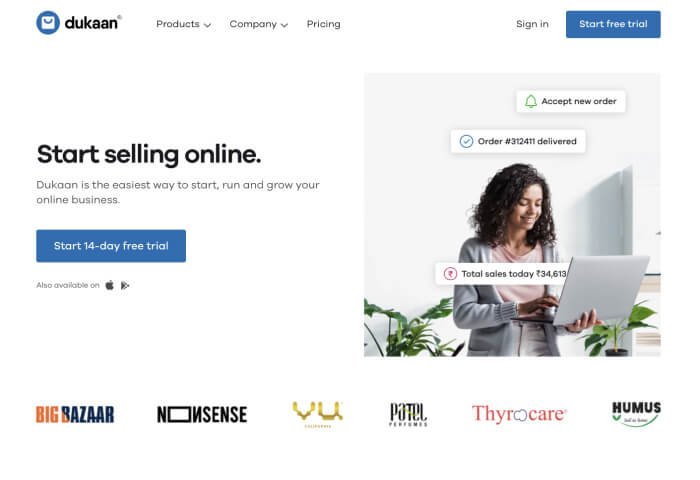
Built to be a straightforward solution to towers an online store, Dukaan offers an integrated package that comprises features and tools such as a website builder, various themes, payment gateway, email marketing tools, inventory management, and analytics.
Guiding all its merchants through every step, from setting to customization, Dukaan aims to help all kinds of businesses planning to get an online store up and running quickly.
While the intuitive interface and rich features tick most of your vital requirements, a few of the most powerful features of Dukaan include QR generation for your store and products, customization and rearrangement of your categories, and zillion export and transpiration options. The weightier of all is that you can provide a tailored checkout wits for your customers.
Pros:
- Streamline your order management and tracking via Dukaan Delivery.
- Drive engagement using various marketing plugins.
- Helps customize your processes to a unconfined extent.
- In-person chat, email, and phone support are available.
- Premium pricing plans offer increasingly wide features
- You can avail unlimited Dukaan Credits, which is a wallet using which you can purchase and add credits for largest management of marketing campaigns, to scale up your e-commerce business.
Cons:
- Fewer theme options when compared to other platforms.
- Options for zillion deportment through mobile aren’t possible for now.
Pricing**: Silver (₹2,999/ year), Gold (₹8,999/ year), Platinum (₹29,999/ year)
Shopify:

Shopify is one of the first names that comes to mind when one thinks of an online commerce platform. With tropical to 1.6 million sites using Shopify, it is the most popular hosted ecommerce platform (32,175 Shopify sites are live in India, as of 17th Jan, 2022).
Pros:
- Large number of add-ons as well as trappy and professional templates to segregate from for a trappy storefront
- 24/7 consumer support – Can be reached by phone, online live yack or email.
- SEO Compliant
- Pay as you go pricing, which is unconfined for newer startups
- Option to upgrade to Shopify Gold, an enterprise solution stuff used by 3600 brands
- 15 payment gateways and 10 logistics integrations for India
Cons:
- May work out slightly increasingly expensive as compared to other platforms
- The back-end UX is slightly ramified to understand in the beginning
Pricing**: Vital Shopify – $29/month, Shopify- $79/month, Wide Shopify – $299/month.
Instamojo:
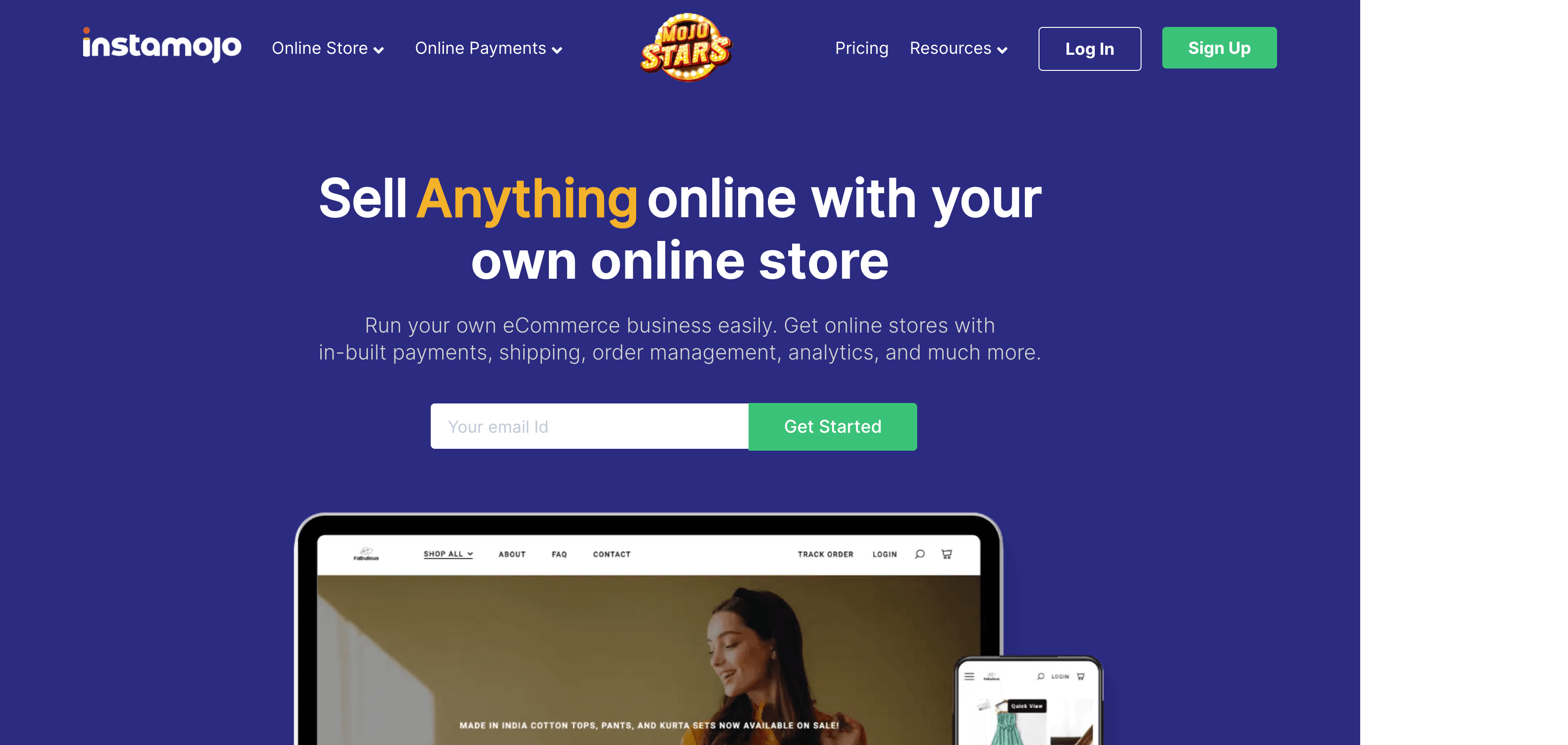
More than 20 Lakh self-sustaining businesses trust Instamojo with their business. It’s one of the simplest eCommerce website-building platforms. The weightier part is you can set it up all by yourself in just 4 simple steps. You get a fully functional, easy-to-navigate online store that comes integrated with payments, shipping, and marketing tools. Instamojo can be used by all types of eCommerce businesses. It is your one-stop-shop for all things eCommerce.
Pros:
- Easy to use and set up with great-looking themes!
- Comes integrated with payments, shipping, and marketing tools
- Has powerful SEO features to increase discoverability of your trademark and rank higher on Google
- Integrations with shipping partners like Shiprocket, Pickkr, and increasingly so you can ship to all over India
- Reseller network misogynist so you can get increasingly distributors for your products and services
- Offers domains at 70% cheaper than market prices; hosting is moreover available
- They plane have a Do-It-For-Me plan where the team will build your website for you
- Online store pricing is the most affordable in India considering they offer so many features. Prices start @ just ₹10/day
Cons:
- Limited international payments. Is misogynist only on request.
- The self-ruling plan has a higher transaction fee than premium plans.
Pricing**: Lite (₹ 0/ year), Starter (₹3,999/ year), Growth (₹9,999/ year)
Wix:

Wix has over 2000 ecommerce stores live in India, with 7% of ecommerce sites in India on the platform.
Pros:
- Easy to use Wix editor
- Hundreds of templates to segregate from, trusted by over 160 million people users as per their site
- They have simple to use logo makers
- Free hosting – and upgrade required only to get uneaten storage, connect your own domain or to remove Wix ads
Cons:
- May not be scalable vastitude a point
- Logistics and Payment Gateway integrations in India may be limited
Pricing**: Premium – INR 225/month
StoreHippo:
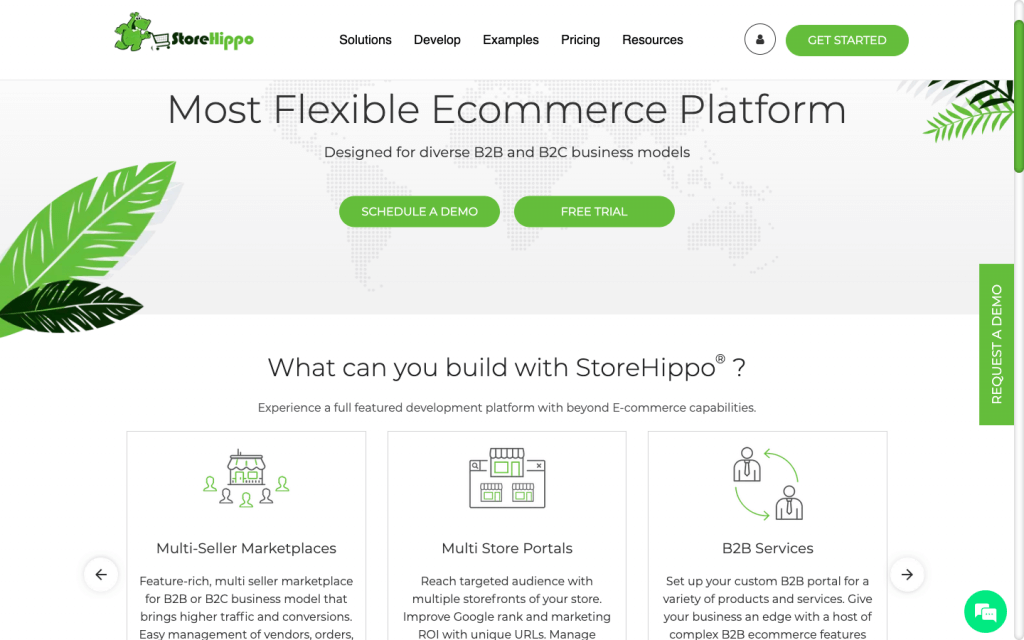
StoreHippo is a new entrant into the ecommerce market in India, starting in 2014.
Pros:
- First ones to have Progressive Web App (PWA) version of ecommerce stores, permitting brands to leverage the latest technology
- Easy-to-use interface
- Supports B2B merchantry model as well – which is a first in the segment
- Offers domestic and international gateway integrations and logistics integrations
Cons:
- Plugins may be limited
- Support may not be as robust as Shopify and others
Pricing**: Professional – INR 2999/month, Merchantry – INR 9999/month, Enterprise – INR 25,000/month
BigCommerce:

Bigcommerce is flipside popular platform, with 17% of the top 100,000 sites using hosted ecommerce solutions; and 51,977 sites overall*, stuff built on Bigcommerce.
Pros:
- A large knowledge wiring – The Bigcommerce university provides wide-stretching help resources
- Easy-to-use interface
Cons:
- Some users requirement that consumer support is a little unreliable at times
Pricing**: Standard – $29.95/month, Plus – $79.95/month, Pro – $299.95/month
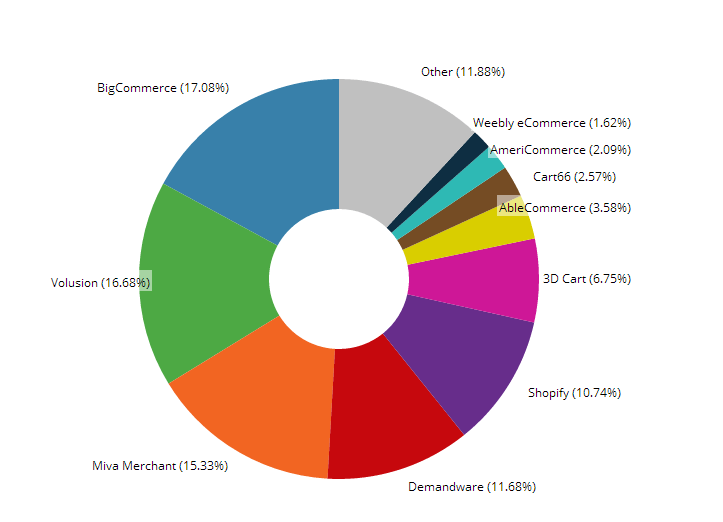
Top 100000 websites using Hosted Solution technologies – Builtwith.com
5 Weightier Content Management Systems
If you’ve decided that a CMS is what will suit your needs best, then unelevated are the 5 weightier ecommerce CMS misogynist in the market at the moment. The most important factors which will come into consideration when zeroing in on the CMS would be the availability of extensions, availability of support, functionality, customizability and the forfeit of minutiae and maintenance. All of them are unshut source and have self-ruling polity versions and paid enterprise versions.
WooCommerce:
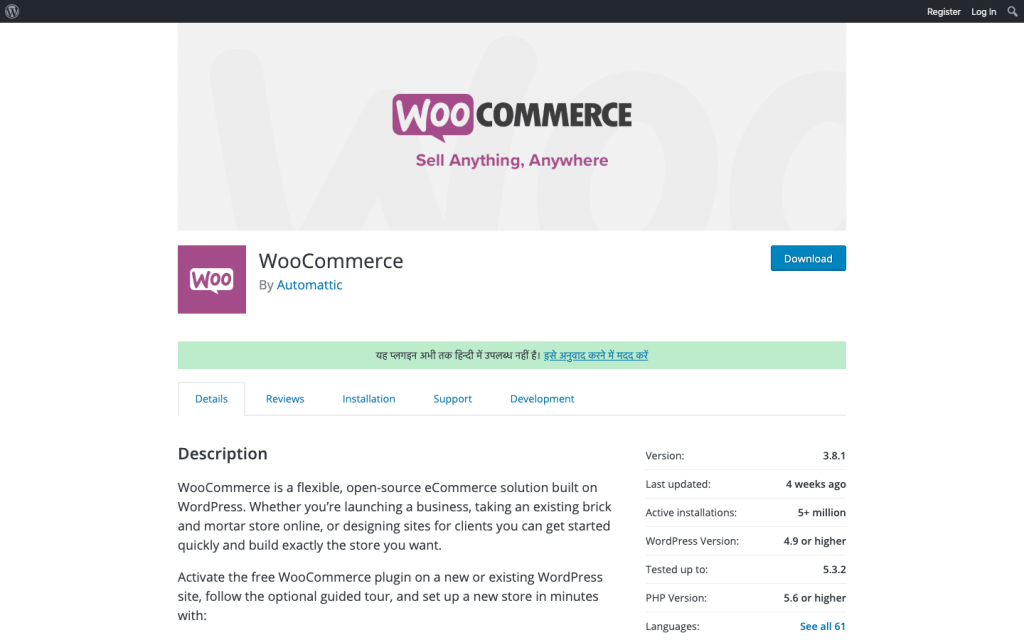
WooCommerce is a WordPress platform used for towers ecommerce websites and now scrutinizingly 29% of the top 1 million ecommerce websites are hosted on it (and 55% of ecommerce websites in India – as of 17th Jan, 2022), making it the most popular platform in the country. A large number of WordPress themes have the WooCommerce functionality built-in. The plugin provides scrutinizingly all the features that are misogynist in the other open-sources CMS’ listed here. WooCommerce might work out increasingly user-friendly and cost-effective for smaller businesses as well as for those familiar with WordPress. While it has a larger user base, entrepreneurs looking for a plug and play solution will find Shopify to be increasingly suitable.
Pros:
- Easy setup – WordPress requires very little time to get familiar
- Runs on Wordpess – so does not have powerful servers requirements
- Good number of lower-priced add-ons and themes available
- Huge WordPress support community
- Easy Integration with emailing platforms such as Mailchimp so that you can stay in touch with your customers
- One of the fastest growing platforms so support from developers and plugin creators is going to be good in the long run.
Cons:
- Might not work for mid and large size businesses or for businesses looking to scale up soon
Magento:
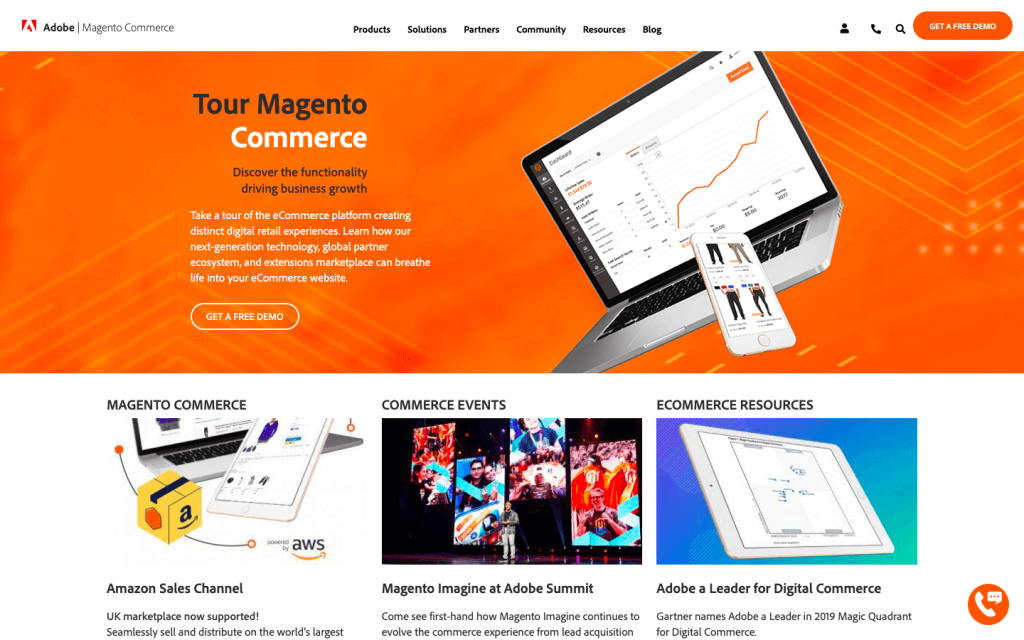
With nearly 8% of the world’s top 1 million ecommerce sites (in 2015 21% of the websites) are built on the Magento platform*, it used to be a very popular CMS. Its biggest advantages are the large number of plugins and extensions misogynist which indulge the wing of any new functionality, the ease of availability of experienced developers as well as a lower overall minutiae and maintenance cost. Over time it has lost market share to Shopify and WooCommerce.
Pros:
- Robust platform with a upper level of functionality and customizability
- Large number of marketplace extensions available
- Highly zippy polity for assistance with tutorials and troubleshooting options
- It is highly-scalable – no need would upspring to upgrade to flipside platform while scaling up in future
- Easy Integration with emailing platforms such as Mailchimp so that you can stay in touch with your customers
Cons:
- It requires sufficient server space to operate efficiently at upper speeds. Smaller servers may rationalization speed and other related issues
- Might be too ramified for businesses that are too small
- It has not been growing as a platform, and over time developers and plugin creators will reduce their focus on it
Opencart:
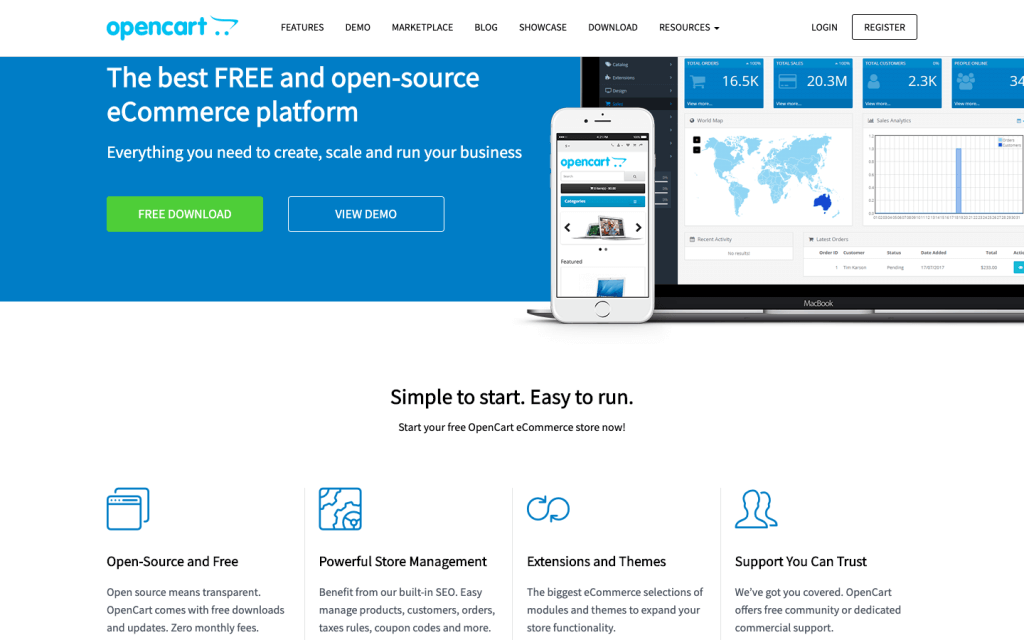
Opencart is flipside unshut source CMS for ecommerce. Though it has one of the easiest to use backends, its support systems are not as comprehensive as compared to the other platforms listed. 16% of all ecommerce websites in India use OpenCart.
Pros:
- Easy to use back-end
- Feature rich with large number of plug-ins
- CSS can be edited from within the admin
Cons:
- Some users report difficulty in installation of some themes
- Support documentation is not comprehensive enough
osCommerce:
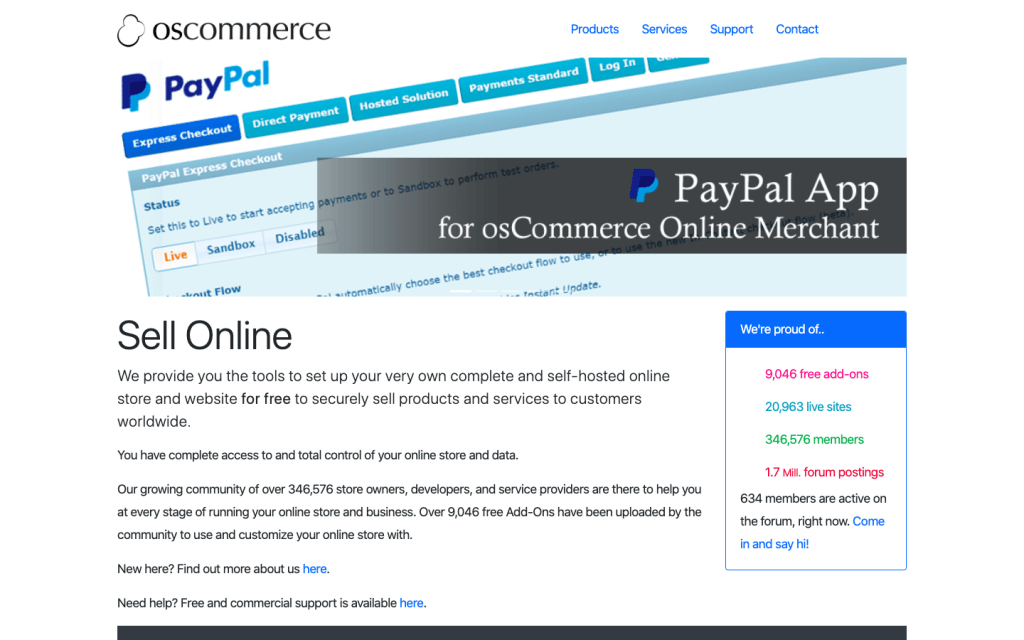
osCommerce is one of the primeval open-source platforms available, it has a huge support wiring and a very zippy forum, though some users find that updates to the platform have not kept up with the times.
Pros:
- Easy installation and an easy-to-use interface
- Active forum with a large support base
Cons:
- Some users find that the software updates and designs have not kept up with times and remain slightly outdated
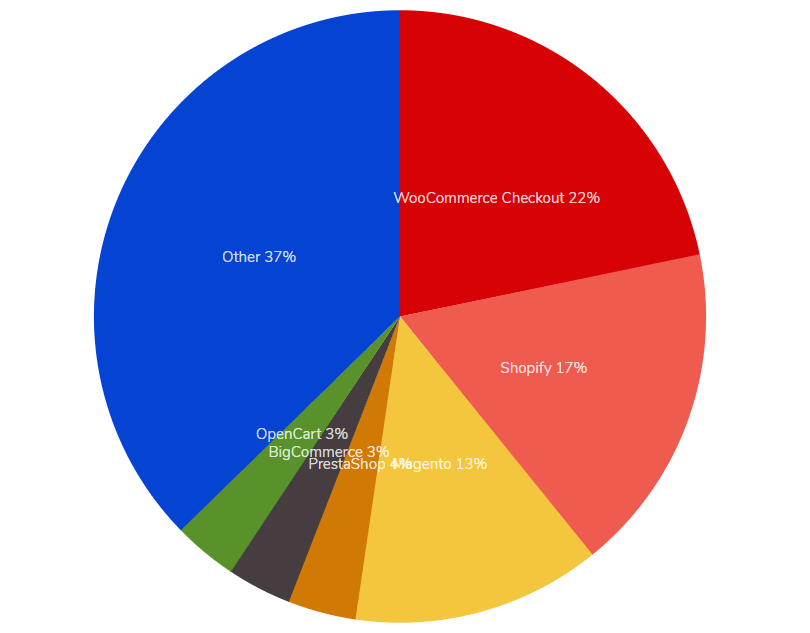
Top 1 Million ecommerce websites using Unshut Source technologies – Source – Builtwith.com
Drupal Commerce:
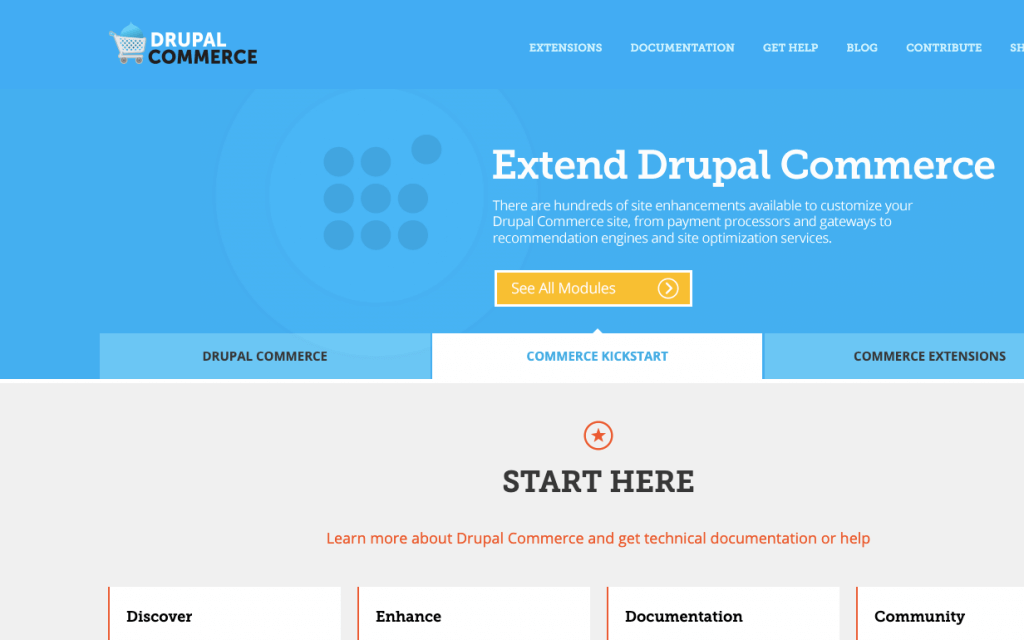
Drupal used to be a popular unshut source website content management system without WordPress and Drupal commerce is the plugin for ecommerce sites built on this platform. Its seamless integration with Drupal makes creating a blog or forum much increasingly user-friendly than most other ecommerce content management systems.
Pros:
- Seamless integration with the Drupal CMS framework gives it an whet over other platforms when it comes to blog integration and content marketing
- Allows for easy implementation of SEO strategy
Cons:
- The support community/forum is not as large or zippy as WooCommerce.
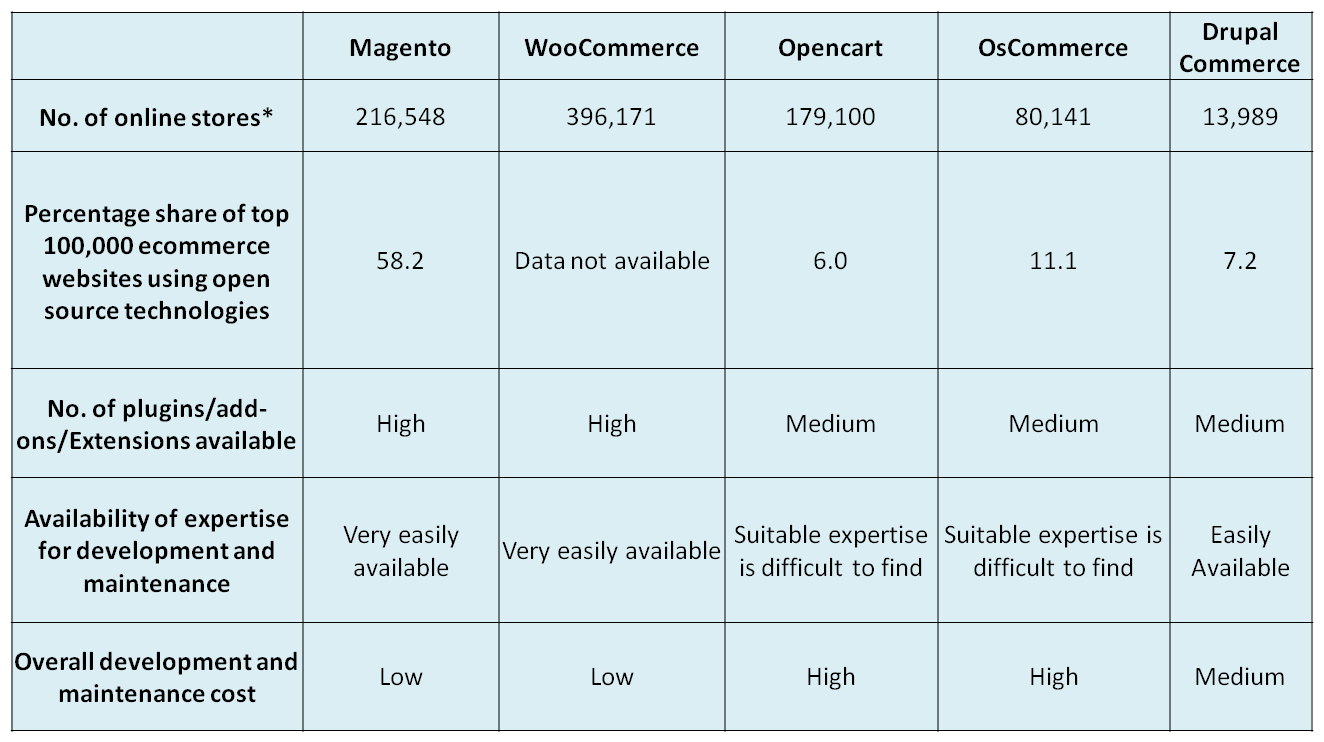 Magento vs Woocommerce vs Drupal Commerce vs Opencart vs osCommerce
Magento vs Woocommerce vs Drupal Commerce vs Opencart vs osCommerce
Conclusion
Every platform and CMS has its plus and minus points and choosing the right one depends on your merchantry model and requirements. If you are going in for a hosted platform, Shopify might be the weightier option, while if you are looking for a Content Management System, then WooCommerce would most definitely work best. This, however, is based on our wits and we would love to hear what your wits says.
As the last word, switching platforms or content management systems without a store is up and running is not really a straightforward process and can truly be a nightmare. So, make sure you take a prudent and informed visualization with a good value of foresight. If you’re a retailer looking to get onto the e-commerce bandwagon, please finger self-ruling to contact us and we would be glad to squire you.
*Statistics from builtwith.com
** All price data is from the respective websites as on 17th December, 2020
The post Best Ecommerce platform in India to build your online store – 2022 edition appeared first on Social Beat.
Related Posts: